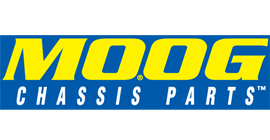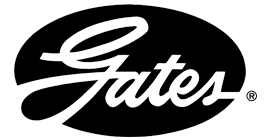
AUTONET TV
Archive for June 2024The ?Man-Made? Engine Oil (Synthetic Oil Change)Posted June 30, 2024 4:01 AMIf you own a newer vehicle, your vehicle’s manufacturer may require that it use synthetic oil instead of conventional oil. Synthetic oils are more stable, don’t break down as easily, and provide better engine protection than conventional oil. All those things can prolong the life of your engine and help it run better. Imagine the damage that could happen to your engine as it operates at high speeds and very hot temperatures. Oil reduces the friction between the metal parts. That’s why it’s important that it maintains its lubricating properties for a long time, which synthetic oil does better than conventional oil. Clean oil is better than dirty oil because it has fewer impurities. Synthetic oil is purer because of how it’s formulated and manufactured. Plus, as the outside temperatures change, the ability of oil to operate in those conditions is important. It’s not only newer vehicles that can benefit from synthetic oil. If you have an older vehicle, synthetic oil may offer superior lubricating than conventional. Our technicians can advise you what’s the best oil for your vehicle and how often you need to change it, which may vary from the owner’s manual recommendations. You might find you’re able to change your oil less frequently than you used to with conventional oil. Yes, synthetic oil is more expensive than conventional, so let us help you decide whether its advantages are worth the difference in price. TJ's Auto Center Inc. Command Performance (Engine Air Filter)Posted June 23, 2024 4:01 AMThe internal combustion engine in your vehicle counts on two things that mix together to be burned in the engine for power: fuel and air. Both are important, of course. If you run out of fuel, your engine won’t run at all. Since there’s plenty of air around, you won’t run out of air, but you could feel your vehicle’s performance suffer if the engine air filter starts to get clogged. It's important that the air that enters your engine be free of dirt, dust, and debris to prevent damage to internal components. That’s where the engine air filter comes in. It prevents those particles from entering the engine, an important job that most people just take for granted. After a while, your air filter will get dirty, which results in less air reaching the engine. Modern fuel injected engines can adjust the amount of gas to mix with the air that is getting in, so your fuel economy won’t change significantly. What will change is how well the engine performs, its acceleration. In one test, a US Department of Energy study showed that a dirty air filter reduced a vehicle’s get-up-and-go by as much as 11 percent. The company that made your vehicle includes guidelines in your owner’s manual on how frequently that filter should be changed, and doing so will maintain your engine’s performance. If you drive in dusty, dirty areas or those with a lot of industrial pollution, we recommend you replace the engine air filter more frequently than the manufacturer’s recommendations. When you bring your vehicle to us for regular maintenance, we will routinely check several components, including your engine air filter, and recommend a change when we see signs it’s needed. It’s good for your engine, and you’ll enjoy the performance you expect. TJ's Auto Center Inc. Strutting Your Stuff (Shocks and Struts)Posted June 16, 2024 4:01 AMEver wonder how your vehicle is able to move over bumps, potholes and other irregularities in the road and you hardly feel a vibration in the cabin? It’s your shocks and struts doing the hard work along with the rest of your suspension and tires. They keep the ride smooth and are important for your vehicle’s safe operation. So, how do you know when your shocks and struts are wearing out? One way is to look at the surface of your tire (where the rubber meets the road—where the tread is). You might see some little indentations in certain spots, known as tire cupping. If your vehicle takes longer to stop than it used to, takes a dive when you hit the brake pedal or bottoms out (scrapes) on a big bump in the road, that’s another sign, as are loud, odd noises. You may also notice your vehicle sways more than it used to. Every once in a while, look around at your shocks to see what shape things are in. If you see the rubber cover cracked or worn out or see a fluid outside your shocks, those are signs to bring your vehicle in to us so we can see what’s going on. Since shocks and struts contribute to the safe operation of your vehicle, this service is important. Shocks and struts are what help your tires stay in close contact with the road and help stabilize your vehicle. They also help electronic safety systems work properly, including anti-lock braking, stability control, and collision avoidance. Bad shocks and struts are just going to get worse with time. It's best to have regular maintenance done before anything goes wrong with your struts and shocks. Your vehicle’s manufacturer has guidelines for how long those intervals are. If you do start to see some of the warning signs, head on over so we can evaluate any problems. We’ll replace the parts your vehicle needs and have you strutting your stuff once again. TJ's Auto Center Inc. A Bright Spark (Ignition Coil Replacement)Posted June 9, 2024 4:01 AMEver wonder how your vehicle’s engine is able to take the 12-volts from its battery and ramp that up to as high as the tens of thousands of volts it takes to fire its spark plugs? The secret is something called an ignition coil. Most newer vehicles have an ignition coil at each cylinder, but older ones have a coil that serves all of the spark plugs. There are telltale signs that you have an ignition coil problem. As you might expect, one symptom is it’s hard to start your engine or it won’t start at all. If your engine is misfiring or not running smoothly or you see the Check Engine light come on, those all could point to an ignition coil failure. Several things can contribute to ignition coil trouble in addition to normal wear and tear. Moisture and dirt may have gotten inside the coil, plus the heat and vibration of your engine over time can contribute to them going bad. Bad spark plugs or plug wires can also be a cause. While ignition coils can last 100,000 miles/160,000 km, depending on how you drive and in what conditions. If you start noticing some of the signs and symptoms just described, it’s a good idea to schedule a visit to see us so a technician can diagnose what’s wrong. Driving too long with an engine misfiring can damage your catalytic converter, and that can be expensive to replace. A technician will thoroughly check your ignition system and determine where the failure is. If it’s only one coil that’s bad, it may be the only thing that will need replacing. If your vehicle has a distributor, it may also need to be replaced. Properly-working ignition coils will help your vehicle operate at its best and help prevent future engine damage. TJ's Auto Center Inc. Flat Tire? Three?s the Charm (Tire Repair)Posted June 2, 2024 4:01 AMFor most drivers, at some point you’re going to have a flat tire. Depending on how it was damaged, it may have to be replaced. But sometimes, a repair will do the trick, as long as the puncture isn’t on the sidewall and the hole is smaller than ¼ inch/6.35mm in diameter. Here are the three common ways your tire can be fixed. One way is to put a plug in the hole. Since most tires are damaged by running over sharp objects such as screws and nails, the small hole from which the air is escaping is on the part of the tire that touches the road. If it’s in the sidewall, it most likely can’t be fixed. In the plug method, a technician inserets a rubber plug. It is covered with some sticky, gluey stuff, and is pushed into the hole from the outside. That plugs the hole and stays in place, thanks to the glue. Friction from driving heats it up and seals the deal. Another method is to patch the hole. For this, your tire has to first be taken off the vehicle, then off the rim so the technician can get access to the inside. There, they’ll clean the inside surface around the hole and apply a rubber patch with an adhesive on it. This type of patch works well, and because of the extra steps and complexity, costs more than having your tire plugged. There’s also a combination of those methods just described, the plug-patch. It is, in essence, a type of patch with glue on it that has a plug sticking out of it. The plug is inserted into the tire from the inside and pulled through the hole from the outside, drawing the attached patch tight against the tire’s inside surface. The last two methods can’t be used if the hole is near another repair or the sidewall. The good news is if it’s fixed properly, your repaired tire should give you good service. TJ's Auto Center Inc. | ||
SearchArchiveJune 2010 (70)July 2010 (4) August 2010 (4) September 2010 (4) October 2010 (4) November 2010 (4) December 2010 (4) January 2011 (4) February 2011 (4) March 2011 (4) April 2011 (5) May 2011 (5) June 2011 (4) July 2011 (4) August 2011 (5) September 2011 (4) October 2011 (4) November 2011 (5) December 2011 (4) January 2012 (5) February 2012 (2) March 2012 (5) April 2012 (4) May 2012 (5) June 2012 (4) July 2012 (5) August 2012 (4) September 2012 (4) November 2012 (1) December 2012 (2) March 2013 (1) April 2013 (3) May 2013 (2) October 2013 (5) November 2013 (2) January 2014 (2) February 2014 (3) March 2014 (1) July 2014 (4) August 2014 (7) September 2014 (4) October 2014 (5) November 2014 (4) December 2014 (5) January 2015 (4) February 2015 (4) March 2015 (4) April 2015 (4) May 2015 (3) June 2015 (5) July 2015 (2) September 2015 (2) October 2015 (4) November 2015 (5) December 2015 (2) February 2016 (2) March 2016 (4) April 2016 (4) May 2016 (5) June 2016 (4) July 2016 (5) August 2016 (4) September 2016 (4) October 2016 (5) November 2016 (4) December 2016 (4) January 2017 (5) February 2017 (4) March 2017 (4) April 2017 (3) May 2017 (5) June 2017 (4) July 2017 (5) August 2017 (4) September 2017 (2) October 2017 (5) November 2017 (4) December 2017 (3) January 2018 (5) February 2018 (4) March 2018 (4) April 2018 (4) May 2018 (4) June 2018 (4) July 2018 (5) August 2018 (4) September 2018 (5) October 2018 (3) March 2019 (4) May 2019 (2) June 2019 (5) July 2019 (2) August 2019 (1) September 2019 (4) October 2019 (5) November 2019 (4) December 2019 (5) January 2020 (5) February 2020 (4) March 2020 (5) April 2020 (1) May 2020 (2) July 2020 (1) August 2020 (5) September 2020 (4) October 2020 (4) November 2020 (5) December 2020 (4) January 2021 (6) February 2021 (4) March 2021 (4) April 2021 (4) May 2021 (5) June 2021 (4) July 2021 (4) August 2021 (5) September 2021 (3) October 2021 (5) November 2021 (4) December 2021 (4) January 2022 (6) February 2022 (4) March 2022 (4) April 2022 (4) May 2022 (5) June 2022 (4) July 2022 (5) September 2022 (4) October 2022 (5) November 2022 (4) December 2022 (4) January 2023 (5) February 2023 (4) March 2023 (4) April 2023 (5) May 2023 (4) June 2023 (4) July 2023 (5) August 2023 (4) September 2023 (3) October 2023 (2) January 2024 (1) February 2024 (4) April 2024 (1) May 2024 (3) June 2024 (5) July 2024 (4) August 2024 (4) September 2024 (5) October 2024 (4) November 2024 (4) December 2024 (4) September 2025 (2) October 2025 (6) November 2025 (5) December 2025 (3) | CategoriesWinter Prep (3)Tires and Wheels (8)Tire Pressure Monitoring System (1)Shocks and Struts (3)Engine Air Filter (5)Warranty (1)Headlamps (6)Alignment (10)Maintenance (19)Battery Replacement (1)Differential Service (4)Cabin Air Filter (3)Steering (12)Fluids (9)Cooling System (9)Tire Rotation and Balancing (4)Drive Train (5)Exhaust (12)Older Vehicles (2)Automotive News (4)Wheel Bearings (2)Fuel System (10)Service Intervals (3)Service Standards (5)Air Conditioning (10)Inspection (5)Battery (12)Brakes (17)Keys to a long lasting vehicle (2)Timing Belt (5)Transmission (5)Fuel Economy (7)Alternator (7)Auto Safety (5)Safety (2)What Customers Should Know (85)Fuel Saving Tip: Slow Down (2)Check Engine Light (4)Dashboard (1)Windshield Wipers (4)Oil Change (9)Customer Detective Work (1)Shocks & Struts (4)Safe Driving (1)Water Pump (3)Tires (11)Suspension (3)TPMS (3)Spark Plugs (2)Winter Tires (1)Fuel Pump (1)PCV Valve (2)Brake Service (8)Serpentine Belt (2)Trip Inspection (2)Transfer Case Service (1)Fuel Filter (2) | |

OUR REVIEWS


Howard L.The business always does a great job and takes care of him. They are very polite.











